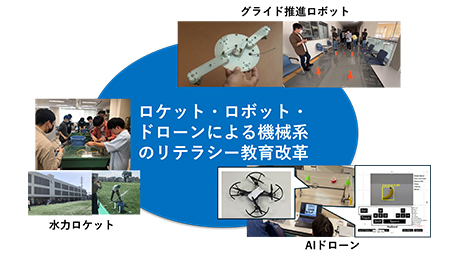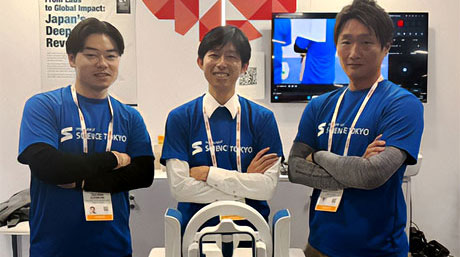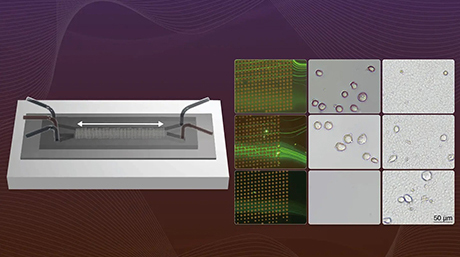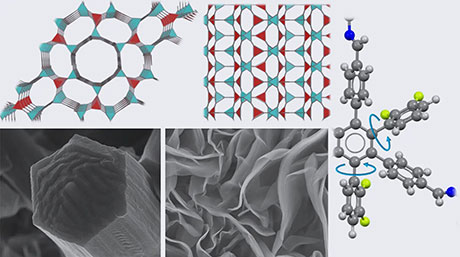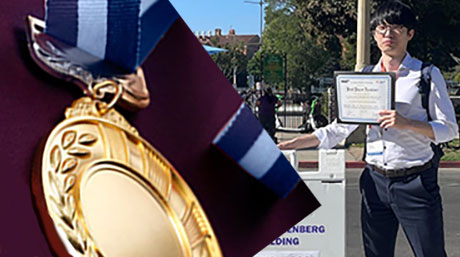Mechanical Engineering News
Winning the Tokyo Tech Best Engineering Teacher Award for innovating the first-year class "Engineering Literacy" in the Department of Mechanical Engineering.
We have received the Tokyo Tech Best Engineering Teacher Award for innovating the first-year class "Engineering Literacy" in the Department of Mechanical Engineering.
Summary of the Award
- Recipients:
- Professor Toru Yagi (representative), Professor Gen Endo, Professor Shingo Maeda, Professor Yoshihiro Mizutani, Professor Daiki Akasaka, Associate Professor Hiroki Nakanishi, Associate Professor Satoshi Miura, Associate Professor Toshio Takayama, Specially Appointed Associate Professor Daisuke Matsuura, Assistant Professor Kotaro Hoshiba Professor Toru Yagi (representative), Professor Gen Endo, Professor Shingo Maeda, Professor Yoshihiro Mizutani, Professor Daiki Akasaka, Associate Professor Hiroki Nakanishi, Associate Professor Satoshi Miura, Associate Professor Toshio Takayama, Specially Appointed Associate Professor Daisuke Matsuura, Assistant Professor Kotaro Hoshiba
- Name of Award:
- Tokyo Tech Best Engineering Teacher Award
- Title:
- Innovation for Mechanical Literacy Education with Rockets, Robots, and Drones
- Date of Award:
- August 29, 2024
- Comments from the Awardee
I am very honored to receive this prestigious award. With these reforms, we have made efforts to convey the appeal of the Mechanical Engineering Department to as many students as possible. Encouraged by this award, we will continue to work hard.
Characteristics of the educational achievements covered
"Engineering Literacy" is a first-year class at the School of Engineering, and the five departments of the
School of Engineering each develop their own unique content. In the Department of Mechanical Engineering,
the content of the traditional literacy class was revamped in 2023, with the aim of showing the connection
to mechanical engineering that students will study from the second year onwards, with the "connection
between the real world (hardware) and mathematics" in mind. In order to stimulate students' curiosity about
science and technology, the following three themes were prepared as new content. All of these are
educational contents that can be experienced with the five senses by combining the real and virtual worlds.
※See [reference materials]
Hydro-powered rockets:Unlike a typical plastic bottle rocket contest, where the flight distance is competed for by trial and error, the theory of hydro-powered rockets (four mechanics) is introduced to the extent that can be understood through high school mathematics and science, and various analyses and experiments are experienced through simulations. On the last day of class, a launch contest is held on the grounds of our university, and the students compete for the accuracy of the launch by adjusting the amount of water, pressure, launch angle, etc. required to reach the target position determined by the simulation. The teaching materials and lessons were designed to allow students to experience the thrill of mechanical engineering, how theory interacts with the real world, while experiencing speed and power.
Robot:Due to price constraints, commercially available educational robots are mostly assembly kits that perform standard movements using one or two motors and link mechanisms, or wheeled robots with differential two-wheel drive. However, the operating principles of these robots are too simple, leaving little room for ingenuity or improvement and making them uninteresting. On the other hand, in order to create something that students can enjoy and that will leave a lasting memory, this class will design and build a robot that focuses on the principle (glide propulsion) that fish and snakes use to move forward by twisting, developed by Professor Endo Gen. This robot, which moves forward and can turn by twisting its head and tail using a single RC servo motor, will not only be built, but the movement of the non-holonomic robot, which is not intuitive, will be compared in real space and virtual space using computer simulation. The performance of the robots will then be competed in a driving contest on the final day.
AI Drone:By adding object recognition and motion control through machine learning to a commercially available hobby drone, this class provides practical experience in applying advanced information technology to existing engineering technology. In this drone system design and construction class, named "AI Drone," students learn the basic principles of model generation through machine learning, and then learn the basic principles of feedback control through actual drone flight. Students then construct an estimation model using deep learning, and use this model to create a system in which the drone autonomously photographs and estimates real markers (such as bananas and demon masks) in real time and patrols the competition course. They repeat the autonomous flight of the AI drone they created by the final class, and learn about the use of AI in the real world through real-time image recognition and model construction using real objects.
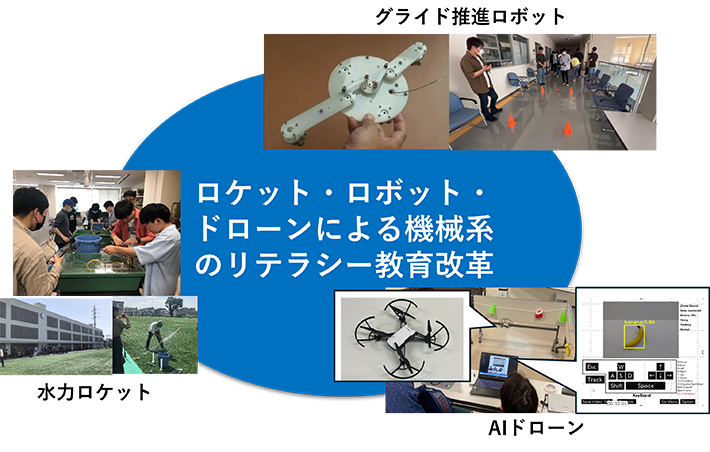
[reference materials]
Educational Effects, etc.
Through this class, students can learn about the "connection between the real world (hardware) and mathematics" through their five senses, and gain practical experience in applying advanced information technology to existing engineering technology.
- Lessons are conducted within the scope of what can be understood in high school mathematics and science.
- By providing opportunities to get their hands-on, students' experience and curiosity about manufacturing are cultivated.
- By providing opportunities for repeated trial and error, practical learning learns the essence of the problem through failure.
In addition, in the 2023 student satisfaction survey, about 50% of the total were "very satisfied" and about 40% were "satisfied", and it was found that about 90% of the total were satisfied with the content of the lessons.
Other (special notes)
All three themes above are originals created by our faculty and staff and do not use existing kits, so they can be flexibly adapted to the needs of students and technological developments today. It is an active learning class that emphasizes not only hands-on work but also theoretical support, and aims to cultivate students' observation and practical skills by encouraging surprise and discovery by having students, who are now accustomed to virtual environments, touch real objects.
Related Links
- 人材育成|東京工業大学 物質理工学院、工学院、環境・社会理工学院(in Japanese)
- Researcher Information - Tohru Yagi|Science Tokyo STAR Search
- Researcher Information - Gen Endo|Science Tokyo STAR Search
- Researcher Information - Shingo Maeda|Science Tokyo STAR Search
- Researcher Information - Yoshihiro Mizutani|Science Tokyo STAR Search
- Researcher Information - Hiroki Akasaka|Science Tokyo STAR Search
- Researcher Information - Hiroki Nakanishi|Science Tokyo STAR Search
- Researcher Information - Satoshi Miura|Science Tokyo STAR Search
- Researcher Information - Toshio Takayama|Science Tokyo STAR Search
- Researcher Information - Daisuke Matsuura|Science Tokyo STAR Search
- Researcher Information - Kotaro Hoshiba|Science Tokyo STAR Search
School of Engineering
—Creating New Industries and Advancing Civilization—
Information on School of Engineering inaugurated in April 2016

